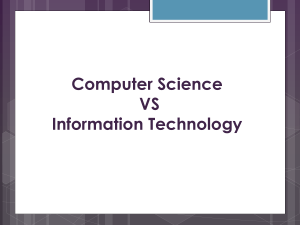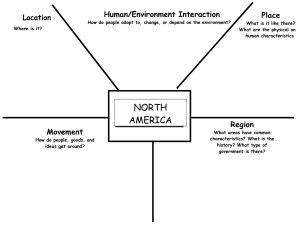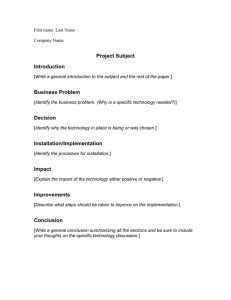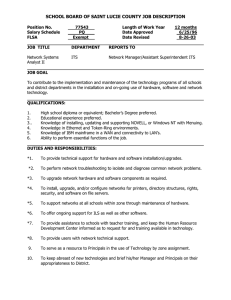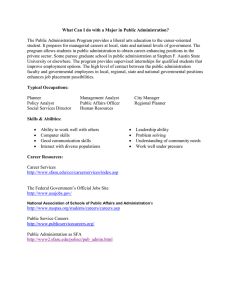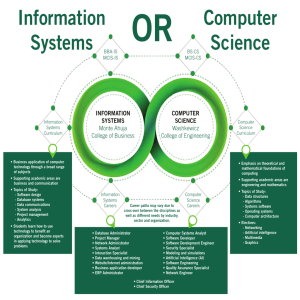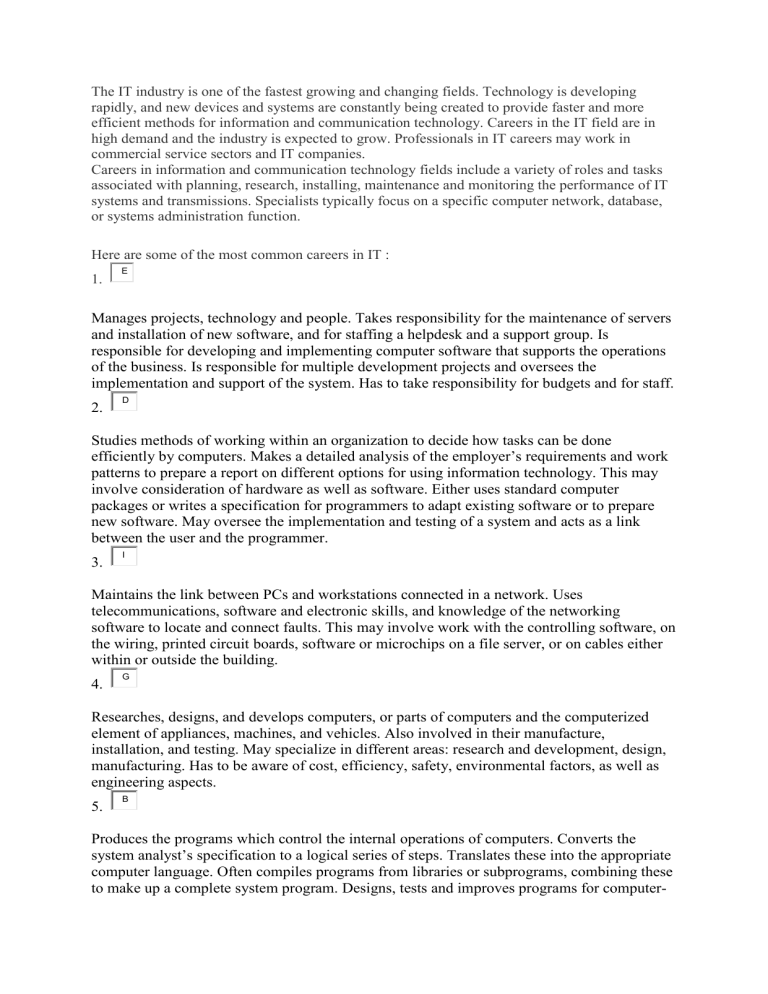
The IT industry is one of the fastest growing and changing fields. Technology is developing rapidly, and new devices and systems are constantly being created to provide faster and more efficient methods for information and communication technology. Careers in the IT field are in high demand and the industry is expected to grow. Professionals in IT careers may work in commercial service sectors and IT companies. Careers in information and communication technology fields include a variety of roles and tasks associated with planning, research, installing, maintenance and monitoring the performance of IT systems and transmissions. Specialists typically focus on a specific computer network, database, or systems administration function. Here are some of the most common careers in IT : 1. E Manages projects, technology and people. Takes responsibility for the maintenance of servers and installation of new software, and for staffing a helpdesk and a support group. Is responsible for developing and implementing computer software that supports the operations of the business. Is responsible for multiple development projects and oversees the implementation and support of the system. Has to take responsibility for budgets and for staff. 2. D Studies methods of working within an organization to decide how tasks can be done efficiently by computers. Makes a detailed analysis of the employer’s requirements and work patterns to prepare a report on different options for using information technology. This may involve consideration of hardware as well as software. Either uses standard computer packages or writes a specification for programmers to adapt existing software or to prepare new software. May oversee the implementation and testing of a system and acts as a link between the user and the programmer. 3. I Maintains the link between PCs and workstations connected in a network. Uses telecommunications, software and electronic skills, and knowledge of the networking software to locate and connect faults. This may involve work with the controlling software, on the wiring, printed circuit boards, software or microchips on a file server, or on cables either within or outside the building. 4. G Researches, designs, and develops computers, or parts of computers and the computerized element of appliances, machines, and vehicles. Also involved in their manufacture, installation, and testing. May specialize in different areas: research and development, design, manufacturing. Has to be aware of cost, efficiency, safety, environmental factors, as well as engineering aspects. 5. B Produces the programs which control the internal operations of computers. Converts the system analyst’s specification to a logical series of steps. Translates these into the appropriate computer language. Often compiles programs from libraries or subprograms, combining these to make up a complete system program. Designs, tests and improves programs for computer- aided design and manufacture, business applications, computer networks and games. 6. C Advises potential customers about available hardware and sells equipment to suit individual requirements. Discusses computing needs with client to ensure that a suitable system can be supplied. Organizes the sale and delivery and, if necessary, installation and testing. May arrange support or training, maintenance and consultation. Must have sufficient technical knowledge. 7. H Is an analyst programmer who is responsible for maintaining updating and modifying the software used by a company. Some specialize in software which handles the basic operation of the computers. This involves the use of machine codes and specialized low-level computer languages. Most handle applications software. May sort out problems encountered by users. Solving problems may involve amending an area of code in the software, retrieving files and data lost when a system crashes, and a basic knowledge of hardware. 8. J Can be responsible for installation, maintenance or repair of computers and associated equipment. Installs hardware, ranging from personal computers to mainframe machines, and tests by running special software. Some technicians carry out routine servicing of large mainframe systems, aiming to avoid breakdowns. Others are called to identify and repair faults as quickly as possible usually by replacing faulty parts. Work can also involve upgrading machines usually on customers’ premises. 9. A Writes the programs which enable computer to carry out particular tasks. May write new programs or adapt existing programs, perhaps altering computer packages to meet the needs of an individual company. When writing a new program, follows a specification provided by a system analyst. Devises a series of logical steps and converts these to the appropriate computer language. Checks programs for faults and does extensive testing. 10. F Tests the security of networks systems and advises customers how to introduce and maintain security policies including setting up secure password systems, installing firewalls, keeping out hackers and dealing with viruses. A Applications Programmer B Software Engineer/Software Designer C Computer Salesperson D System Analyst E IT Manager F Security Specialist G Hardware Engineer/Hardware Architect System Support Person/System H Administrator I Network Support Person/Network Engineer J Computer Services Engineering Technician Now complete the definitions with the verbs used in the text. Write correct WORDS in each gap. 1. carry out – do and complete a task devise 2. – invent something new or a new way of doing something identify 3. – find/discover and recognize something amend 4. – to change something (usually a text) slightly in order to correct a mistake or to improve it locate 5. – find the exact position of something install 6. – put a new program onto a computer adapt 7. – change something in order to make it suitable for a new use or situation compile 8. – translate instructions from one computer language into another so that a particular computer can understand them handle 9. – deal with and control convert 10. – change something from one system to another
